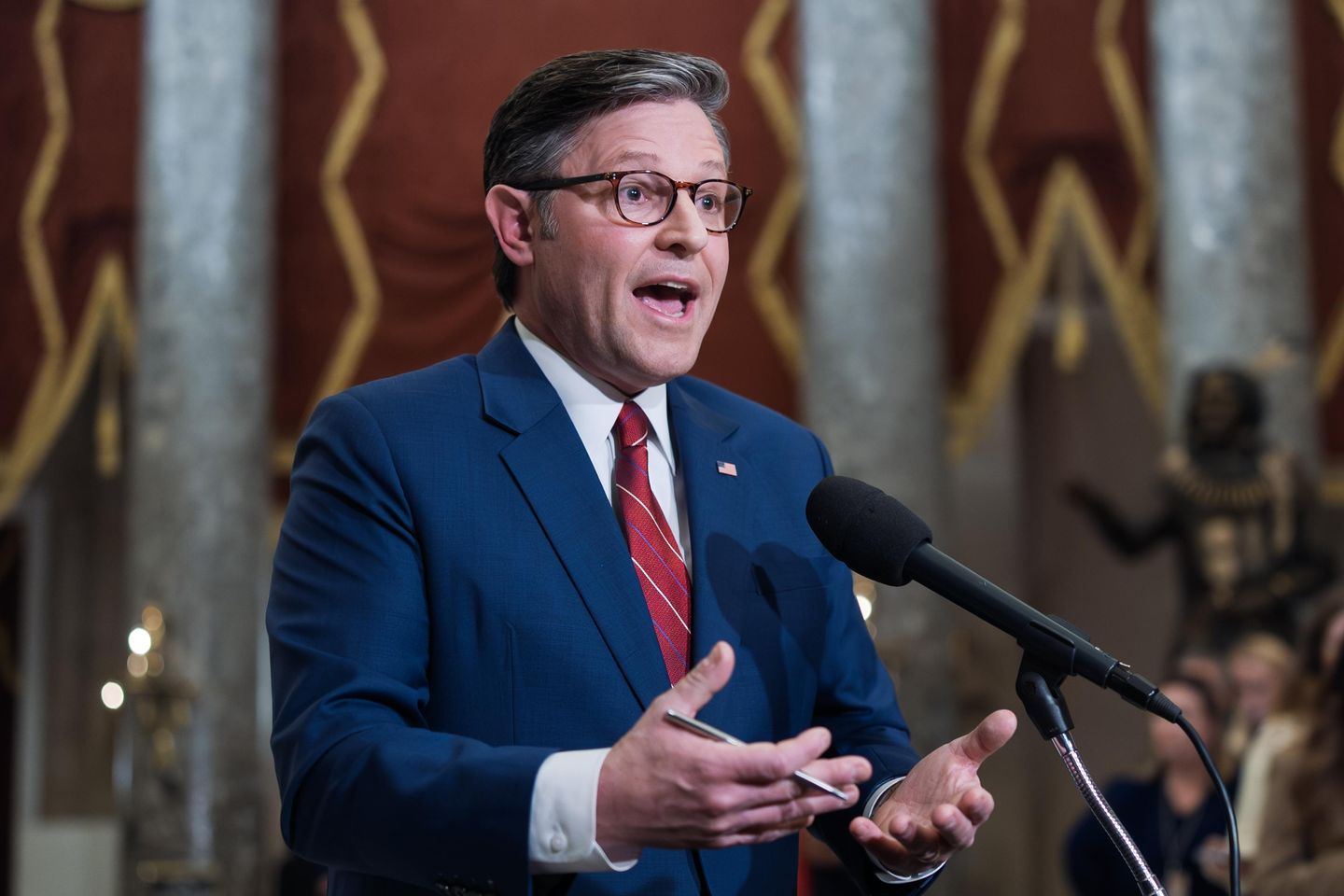
The legislative tool that House lawmakers used to force a vote on releasing the Epstein files is growing in popularity, as frustrated rank-and-file members move to advance bipartisan priorities that GOP leaders have ignored.
A bill to reverse a Trump executive order halting collective bargaining agreements for federal workers will get a vote next month after a successful discharge petition. And lawmakers are eyeing similar efforts to force votes on Russia sanctions and legislation banning members of Congress from stock trading.
The discharge petition process allows a majority of House lawmakers, 218, to force a vote on legislation when leadership refuses to bring it to the floor.
It’s common for the minority party to file and support discharge petitions, but fairly rare for members of the majority party to do so.
Bipartisan use of the process has increased this Congress. With House Republicans’ current slim majority, it only takes a handful to break from the party and band together with Democrats to use the tool to go around Speaker Mike Johnson, Louisiana Republican.
That’s what happened when Kentucky Rep. Thomas Massie and three other Republicans signed a discharge petition with all Democrats to force a vote on a bill to require the Justice Department to release its files from the Jeffrey Epstein sex trafficking investigation.
Their effort led to the bill passing both chambers last week with near-unanimous support. President Trump opposed the discharge petition for months, but decided to support the bill and sign it into law once it became clear he would not be able to tamp down GOP support for the measure.
The day before the House vote on the Epstein files, another discharge petition got its 218th and final signature.
The petition, led by Rep. Jared Golden, Maine Democrat, will force a vote next month on a bill to repeal a Trump executive order that ended collective bargaining rights for roughly 1 million unionized federal employees across several agencies.
The executive order cited “national security requirements and considerations,” but opponents said it was an illegal attempt at “union busting.”
Five Republicans signed the petition: Reps. Brian Fitzpatrick and Robert Bresnahan of Pennsylvania; Don Bacon of Nebraska; and Nick LaLota and Michael Lawler of New York.
“Restoring collective bargaining rights strengthens our federal workforce and helps deliver more effective, accountable service to the American people,” Mr. Lawler said in a statement.
Three other Republicans cosponsored the bill to repeal the executive order but did not sign the discharge petition.
There are more discharge petitions coming.
Mr. Fitzpatrick said he will “force a vote on crushing Russian sanctions.” His discharge petition will be open for signatures when the House returns from its Thanksgiving recess.
Congressional GOP leaders in both chambers have declined for months to hold a vote on a bipartisan Russia sanctions bill without Mr. Trump’s approval.
The bill, led by Mr. Fitzpatrick and his Democratic co-chairs of the Congressional Ukraine Caucus, would allow Mr. Trump to impose strict sanctions on Russia and countries that buy Russian oil. The legislation has a total of 120 sponsors, split evenly between Republicans and Democrats.
Sens. Lindsey Graham, South Carolina Republican, and Richard Blumenthal, Connecticut Democrat, are leading the bill in the Senate. They are among 85 senators backing it.
Mr. Trump signaled support for the sanctions legislation early last week, but by week’s end the administration was reportedly backing a 28-point peace plan that favored Russia’s demands over Ukraine’s. That spurred Mr. Fitzpatrick’s interest in launching the discharge petition.
“This Russian-drafted propaganda must be rejected and disregarded for the unserious nonsense that it is,” Mr. Fitzpatrick said on social media. “This moment requires Peace Through Strength, not appeasement.”
Mr. Fitzpatrick’s use of the discharge petition is notable because he told The Washington Times earlier this month that he views it as a tool of last resort.
“You never start with that,” he said. “That’s the last option. You try to do things through the normal course.”
Axios reported last week that the speaker said he would consider changing House rules to raise the threshold for signatures needed on a discharge petition, but Mr. Johnson told Fox News Digital that he was misquoted.
“That hasn’t even been part of the discussion and not something that I’ve anticipated,” he said.
The Washington Times reached out to Mr. Johnson’s office for comment on the rise in bipartisan discharge petitions.
Another bipartisan bill that could come to the floor via a discharge petition is the Restore Trust in Congress Act, which would ban lawmakers, their spouses and children from owning or trading stocks and similar assets.
Rep. Anna Paulina Luna, Florida Republican, has repeatedly said she will launch a discharge petition on the measure if it doesn’t move through regular order.
The House Administration Committee held a hearing last week on the issue, and some lawmakers raised concerns about implementing a full stock trading ban.
Ms. Luna has said attempts to water down the legislation are “unacceptable.”
“The only way we may be able to ban insider trading is by using a discharge petition,” she said on social media.
Ms. Luna said Mr. Johnson has been supportive, and he is “not the one I’m worried about.”
“It’s the bipartisan coalition of now multimillionaire members who are actively and ILLEGALLY engaging in insider trading in BOTH the HOUSE and the SENATE,” she said.
Ms. Luna is one of 21 Republicans who have signed onto the Restore Trust in Congress Act, along with 80 Democrats.
A few Republicans, like Mr. Bacon, have said they’d be willing to use a discharge petition to force a vote on a bipartisan proposal to temporarily extend enhanced Obamacare subsidies set to expire this year with an income cap, but there’s been no action taken on that yet.
While the Epstein file discharge petition is the only one to have received a vote so far this Congress, it was not the first to get 218 signatures.
Ms. Luna had gathered enough support early this year for a discharge petition on a House rule change allowing new mothers or fathers to vote by proxy for up to 12 weeks.
She ultimately struck an agreement with Mr. Johnson to drop her discharge petition in exchange for use of an alternative vote-pairing arrangement that would still allow new parents’ positions on legislation to be recorded when they can’t make it to Washington.










